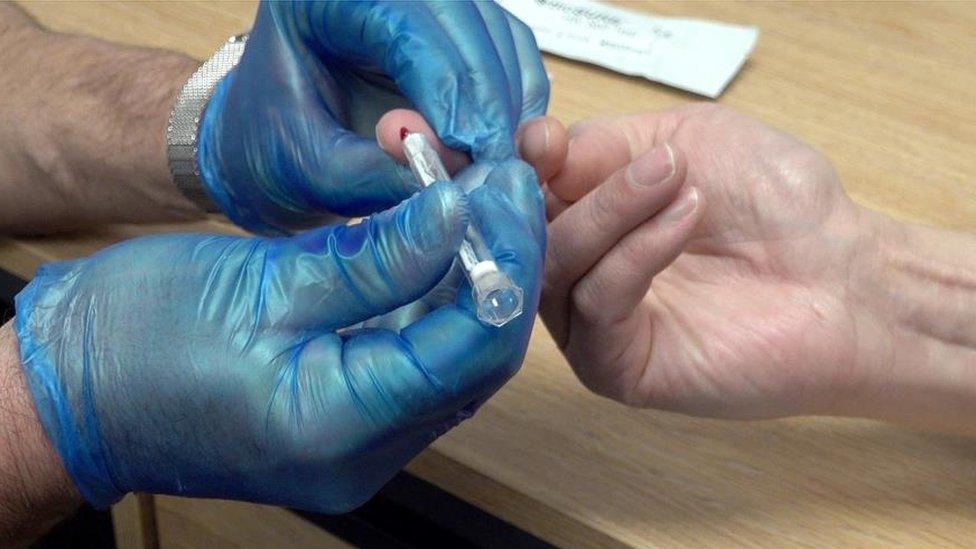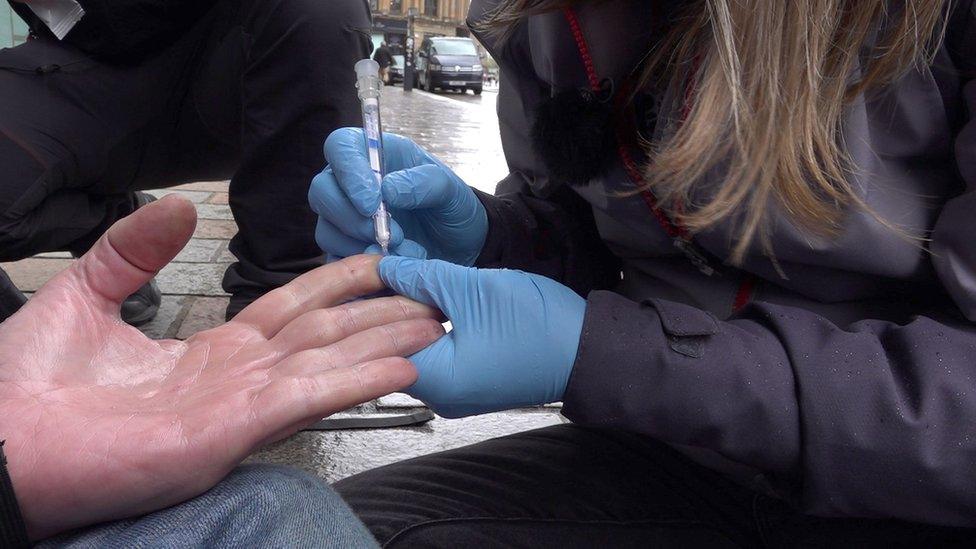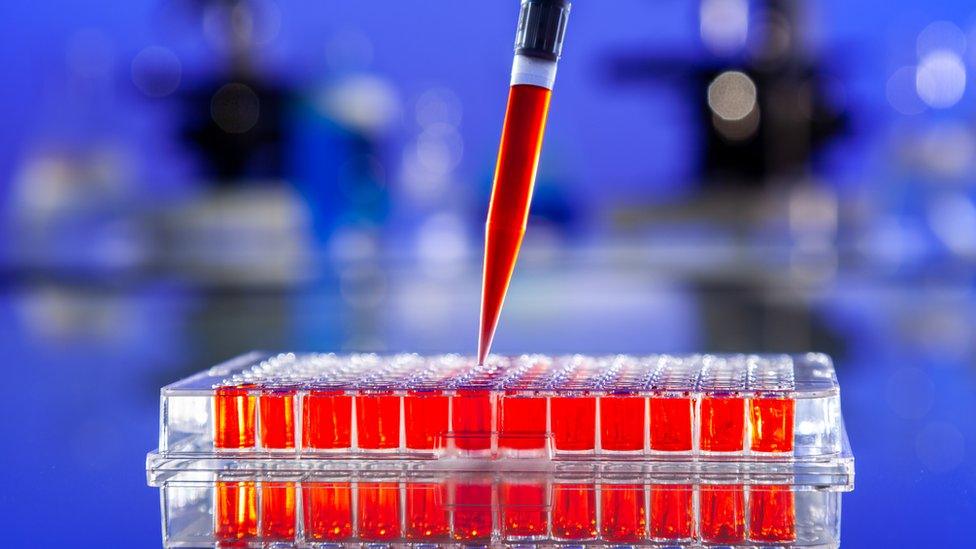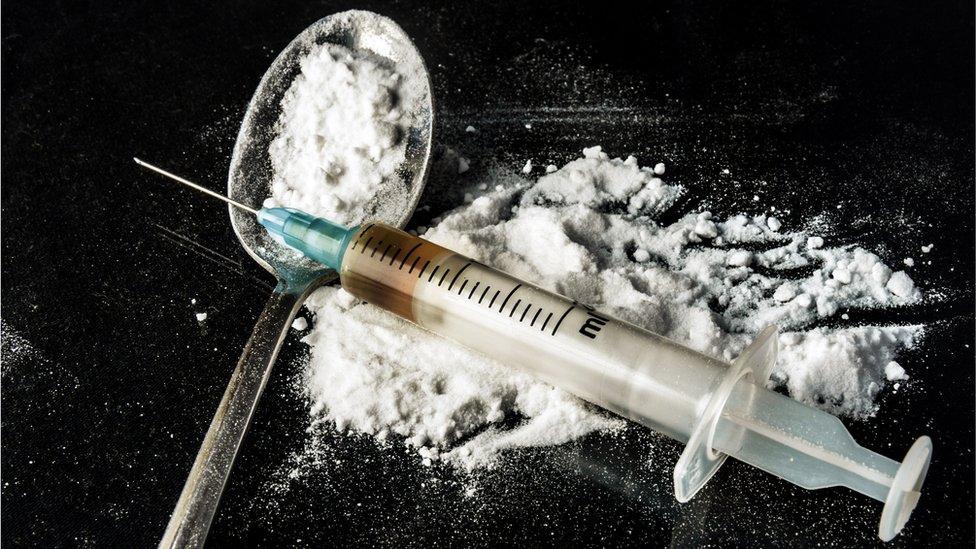Rapid tests to help tackle Glasgow's HIV outbreak
- Published

New HIV tests that provide results in minutes have been introduced in Glasgow to help tackle the worst outbreak of the infection in decades.
Drug users sharing needles are in the group most affected by the surge of HIV cases in Scotland's biggest city.
Previously, test results could take up to two weeks to come back from the laboratory and it could be difficult to trace people to tell them the outcome.
The finger-prick blood tests will be available at needle exchanges.
About 170 people in Glasgow are believed to have contracted HIV in the current outbreak, but it is feared the actual number may be much higher as many drug users do not engage with needle exchange services.
Experts say with each new case of HIV the potential for harm grows because of the vulnerable nature of those involved, many of whom are homeless.
Injecting in 'filthy' conditions
John Campbell, of the Glasgow City Health and Social Care Partnership, said getting results in minutes means those with positive results "can link into treatment instantly" while those who do not have the infection can be given harm-reduction advice.
He said: "Undoubtedly, the current HIV outbreak is due to people sharing drug-taking equipment.
"Currently, people are injecting outdoors in filthy, sometimes urine-soaked alleyways or on derelict ground.
"Glasgow has some of the best needle exchange services in the world but it is very hard for us to influence people's injecting behaviour unless professionals are present when they inject."
Allow X content?
This article contains content provided by X. We ask for your permission before anything is loaded, as they may be using cookies and other technologies. You may want to read X’s cookie policy, external and privacy policy, external before accepting. To view this content choose ‘accept and continue’.

More than 5,000 people are living with HIV in Scotland and modern antiretroviral drugs mean those with the condition can live long and healthy lives.
Rapid HIV tests were first piloted in Glasgow by the Waverley Care charity, but the latest initiative will significantly increase their availability.
Nathan Sparling, chief executive of HIV Scotland, believes it will allow people to receive treatment more quickly.
'Not pass it on'
He told the BBC's Good Morning Scotland programme: "For this particular population, who might not come back into services for a couple of weeks or might be moving around, some people just weren't getting their results.
"Now, these tests mean we can get people into treatment so that they can become undetectable and live well with HIV and not pass it on sexually."
Later this month, two summits to discuss Scotland's record drug death rate will take place in Glasgow.
Many of the drugs workers and medical staff who try to treat the HIV positive population in Glasgow favour the idea of a drug consumption room - or safe injecting facility.
Glasgow City Council and GCHSCP want to open an indoor location where drug users can consume drugs they have bought on the streets in a safe and clean environment.
They have the support of the Scottish government but drug laws are reserved to Westminster and a UK government spokeswoman confirmed it has no plans to introduce such centres.
But the spokeswoman said discussions on how it can "most effectively prevent the health-related harms of drugs misuse" will take place at the drugs summit it is holding in Glasgow on 27 February, a day after a Scottish government summit on the same issue.

Drug-using homeless people are among those which it is hoped will make use of the new rapid tests
- Published18 August 2019
- Published18 August 2019

- Published27 August 2019

- Published12 February 2020
